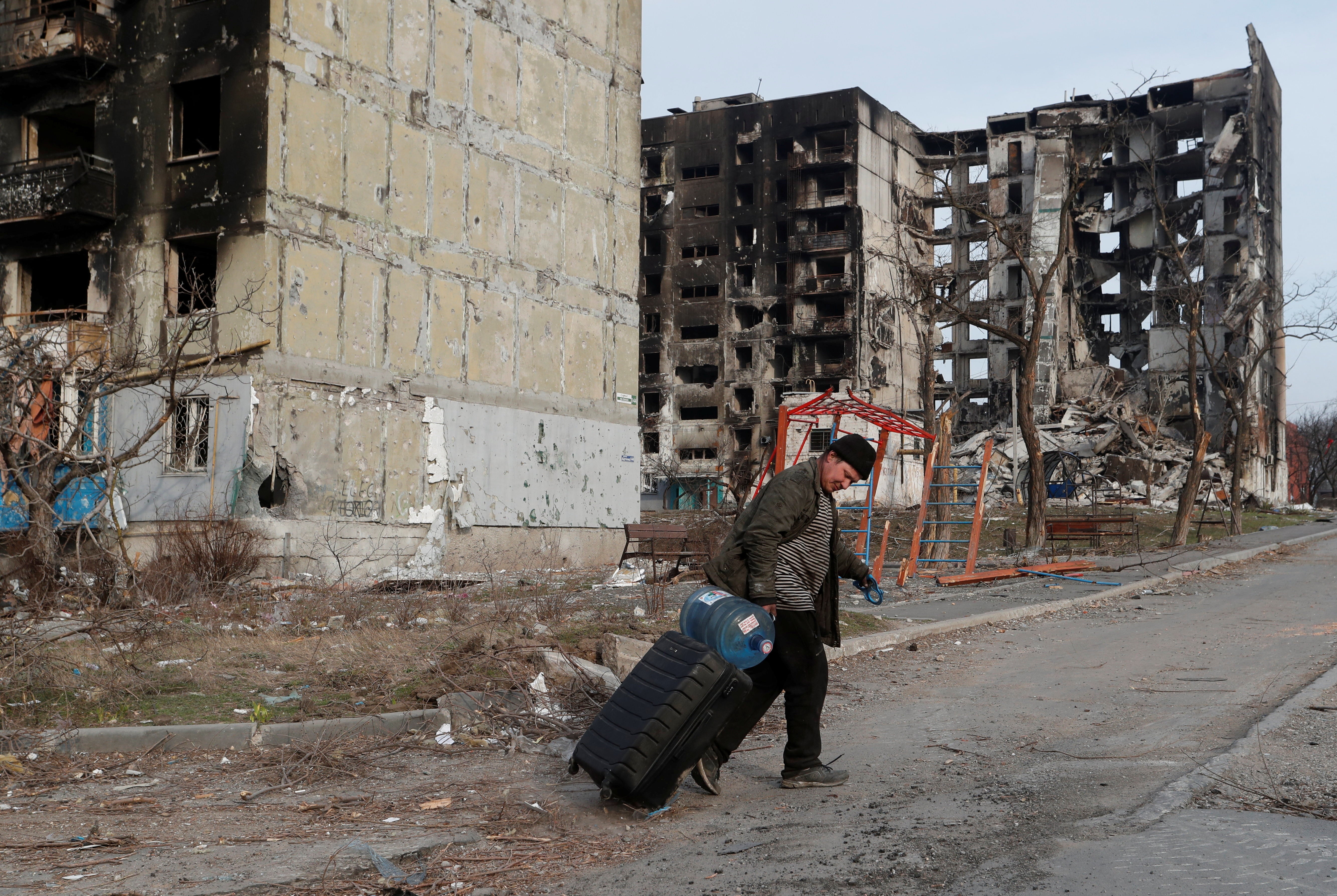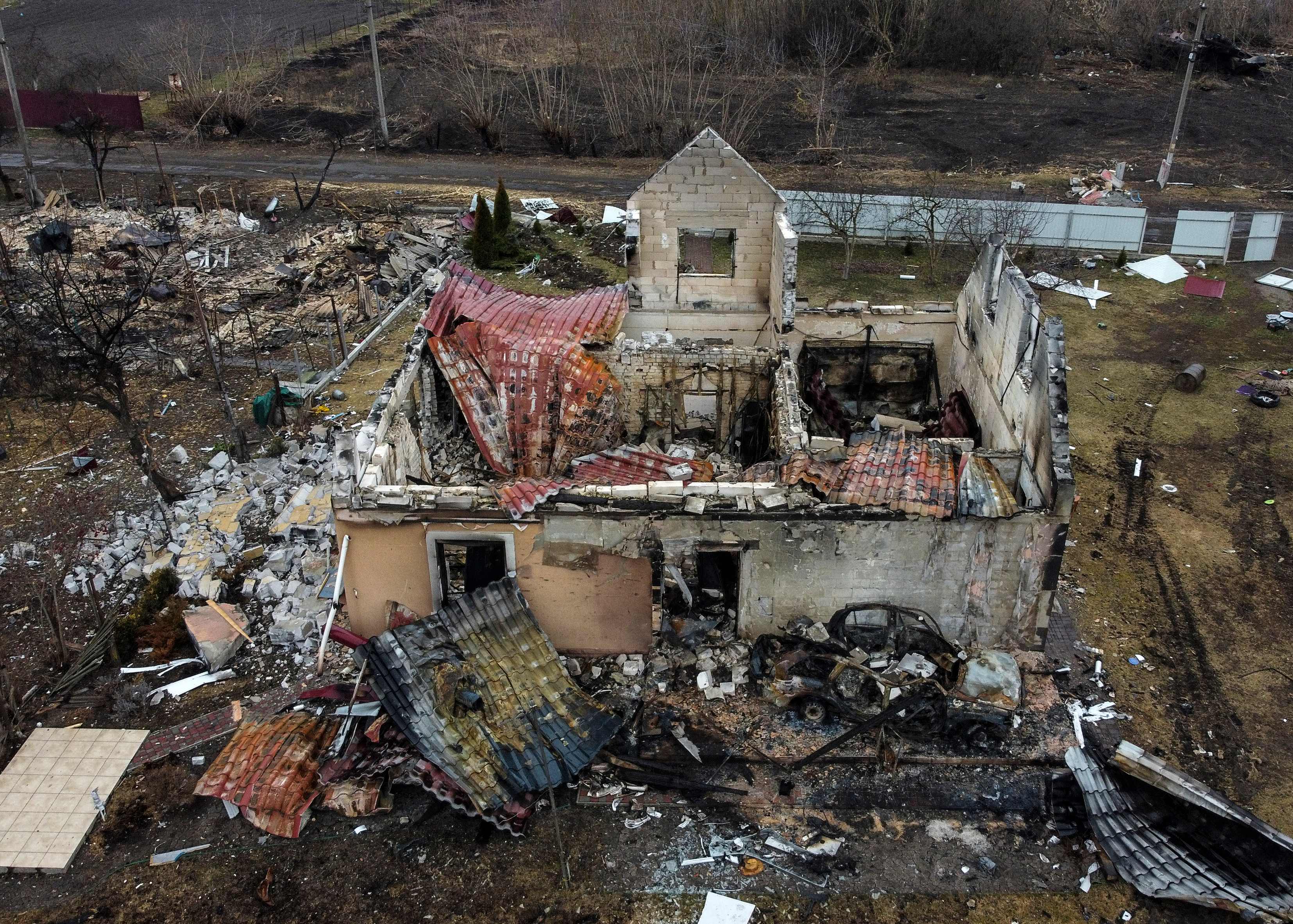My fiance is joining the front line in Ukraine
The capital seemed determined to stay alive, but something inside me was doing the opposite - it was like a light was extinguishing, fading away

When Pavlo told me with a cryptic smile that he had news, I thought he was talking about a new shipment of humanitarian aid and the challenges to deliver it. But what he told me made me go numb.
“I can’t sit by a woman’s skirt when there’s a war,” he told me, trying to summon as much tenderness as he was capable of. My fiance was going to the front lines, and all I could do was tearfully ask why.
A few weeks ago, as Russian bombs began to pummel Ukraine, we fled our lives in Kyiv and moved to the western city of Lviv with a few suitcases and our two cats. Pavlo, who worked as an adviser in the ministry of energy before the war, immediately tried to join the war effort. But when he went to a recruitment office, he was told that there were enough soldiers.
So he got busy coordinating humanitarian aid from abroad, overseeing deliveries to the most affected regions. I was sure he would avoid direct hostilities. So when he told he had decided to go to the front lines, I was shocked, devastated.
“I know you’ll understand,” Pavlo said with a shy grin.
I did and didn’t. I didn’t want to discourage him, but I couldn’t accept his decision for days. It was as if everything inside me had frozen. It is the kind of decision that could be impossible to overturn.
We went to Kyiv to see his relatives and get his military gear. The first thing I noticed was how loud it was in the capital. The neighbourhoods rumbled - it was as if the sound of shelling and bombing was all around us, close and far away at the same time. We saw cars blown up by rockets on main roads and drove by a shopping mall that was attacked and where eight people were killed.
One night, we gathered with friends at a house and, since a curfew had been announced in Kyiv, we all stayed there for the night. Explosions rang out in the distance. “It’s the air defense working,” explained our friend Vitaly, a veteran of the war in the Donbas region.
We calmed down and went to bed, only to be woken up a couple hours later. The house was shaking. Grad rockets were falling about 500 feet from us. Everything around us was on fire: the forest and the buildings; there was no phone signal. We went downstairs and spent the night in a bomb shelter, and in the morning we blew a tire after hitting a piece of shrapnel. A local member of the territorial defence units who happened to be driving by helped us put the spare on the car.

The scenes in Kyiv were disorienting. The streets were empty, but some small stores and coffee shops were open. The capital seemed determined to stay alive, but something inside me was doing the opposite - it was like a light was extinguishing, fading away.
I had turned to stone, heavy, impenetrable. I’m in Ukraine, and I have to stay strong, I told myself. I am in the rear. I can create life - life for which hundreds of thousands of Ukrainian soldiers are now risking their lives on the front lines.
We spent the night in another town. In the morning, Pavlo met a truck of humanitarian aid that was going to the front line. That’s when we said our goodbyes.
Pavlo texts me almost every day, but he doesn’t say much. It is what he keeps from me that worries me. “I was at the firing range. Everything is fine.”
But he ends each conversation with “I love you.”
And suddenly I feel alive again. When we win this war, our love will rebuild our country.
Iuliia Mendel is a journalist and former press secretary for Ukrainian President Volodymyr Zelensky
Join our commenting forum
Join thought-provoking conversations, follow other Independent readers and see their replies
Comments